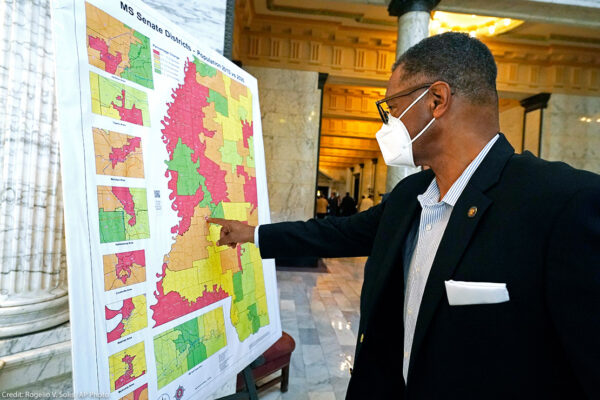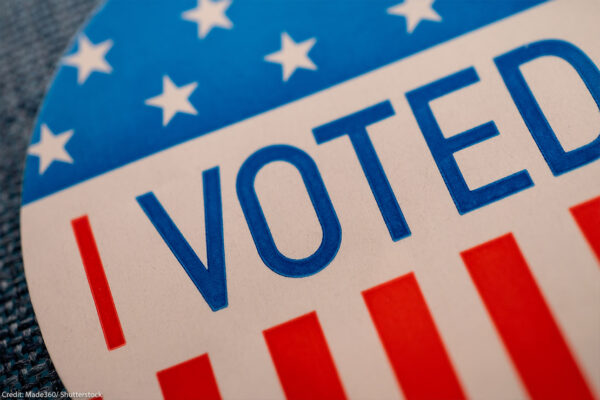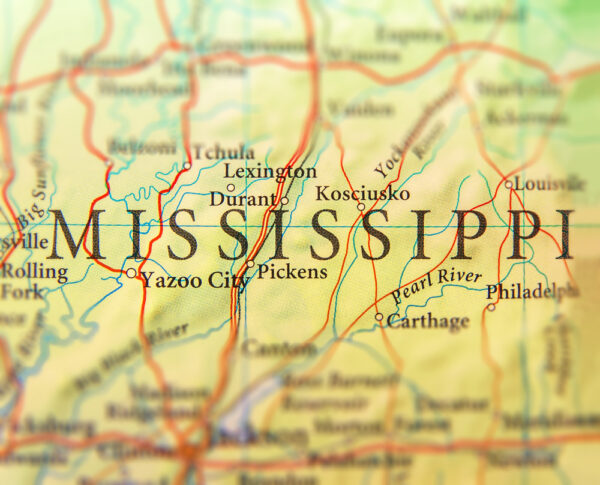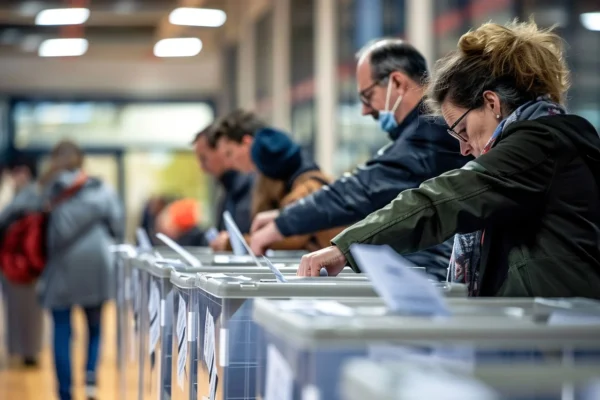Supreme Court Term 2025-2026
We’re breaking down the cases we've asked the court to consider this term.
Latest Case Updates
Ongoing
Updated November 5, 2025
Ongoing
Updated November 4, 2025
Ongoing
Updated October 21, 2025
Ongoing
Updated October 17, 2025
Featured
U.S. Supreme Court
Nov 2025

Voting Rights
Racial Justice
Allen v. Milligan
Whether Alabama’s congressional districts violate Section 2 of the Voting Rights Act because they discriminate against Black voters. We succeeded in winning a new map for 2024 elections which, for the first time, has two congressional district that provide Black voters a fair opportunity to elect candidates of their choosing despite multiple attempts by Alabama to stop us at the Supreme Court. Despite this win, Alabama is still defending its discriminatory map, and a trial was held in February 2025 to determine the map for the rest of the decade.
In May 2025, a federal court ruled that Alabama's 2023 congressional map both violates Section 2 of the Voting Rights Act and was enacted by the Alabama Legislature with racially discriminatory intent.
Washington, D.C.
Oct 2025

Voting Rights
League of Women Voters Education Fund v. Trump
On March 25, 2025, in a sweeping and unprecedented Executive Order, President Trump attempted to usurp the power to regulate federal elections from Congress and the States. Among other things, the Executive Order directs the Election Assistance Commission‚ÄĒan agency that Congress specifically established to be bipartisan and independent‚ÄĒto require voters to show a passport or other citizenship documentation in order to register to vote in federal elections. If implemented, the Executive Order would threaten the ability of millions of eligible Americans to register and vote and upend the administration of federal elections.
On behalf of leading voter registration organizations and advocacy organizations, the ļž–” ”∆Ķ and co-counsel filed a lawsuit to block the Executive Order as an unconstitutional power grab.
U.S. Supreme Court
Oct 2025

Voting Rights
State Board of Election Commissioners v. Mississippi State Conference of the NAACP
Mississippi has a growing Black population, which is already the largest Black population percentage of any state in the country. Yet. Black Mississippians continue to be significantly under-represented in the state legislature, as Mississippi’s latest districting maps fail to reflect the reality of the state’s changing demographics. During the 2022 redistricting process, the Mississippi legislature refused to create any new districts where Black voters have a chance to elect their preferred representative. The current district lines therefore dilute the voting power of Black Mississippians and continue to deprive them of political representation that is responsive to their needs and concerns, including severe disparities in education and healthcare.
U.S. Supreme Court
Oct 2025

Voting Rights
Louisiana v. Callais (Callais v. Landry)
Whether the congressional map Louisiana adopted to cure a Voting Rights Act violation in Robinson v. Ardoin is itself unlawful as a gerrymander.
Missouri
Sep 2025

Voting Rights
Wise v. Missouri
In unprecedented fashion, the State of Missouri has redrawn the district lines used for electing members of Congress for a second time this decade. These new district lines are gerrymandered and will harm political representation for all Missourians, particularly Black residents in Kansas City, who have been divided along racial lines.
Mississippi
Aug 2025

Voting Rights
White v. Mississippi State Board of Elections
District lines used to elect Mississippi’s Supreme Court have gone unchanged for more than 35 years. We’re suing because this dilutes the voting strength of Black residents in state Supreme Court elections, in violation of the Voting Rights Act and the U.S. Constitution.
Louisiana
Aug 2025

Voting Rights
Nairne v. Landry
Nairne v. Landry poses a challenge under Section 2 of the Voting Rights Act of 1965 to Louisiana’s House and Senate legislative maps on behalf of plaintiff Black voters and Black voters across the state.
Ohio
Jul 2025

Reproductive Freedom
Planned Parenthood Southwest Ohio Region et al., v. Ohio Department of Health, et al.
The ļž–” ”∆Ķ, the ļž–” ”∆Ķ of Ohio, Planned Parenthood Federation of America, the law firm WilmerHale, and Fanon Rucker of the Cochran Law Firm, on behalf of Planned Parenthood Southwest Ohio Region, Planned Parenthood of Greater Ohio, Preterm-Cleveland, Women‚Äôs Med Group Professional Corporation, Dr. Sharon Liner, and Julia Quinn, MSN, BSN, amended a complaint in an existing lawsuit against a ban on telehealth medication abortion services to bring new claims under the Ohio Reproductive Freedom Amendment, including additional challenges to other laws in Ohio that restrict access to medication abortion in the state.
U.S. Supreme Court
Apr 2024

Reproductive Freedom
Idaho and Moyle, et al. v. United States
Idaho and Moyle, et al. v. United States was appealed to the U.S. Supreme Court by Idaho politicians seeking to disregard a federal statute ‚ÄĒ the Emergency Medical Treatment and Labor Act (EMTALA) ‚ÄĒ and put doctors in jail for providing pregnant patients necessary emergency medical care. The Supreme Court heard oral arguments on this case on April 24, 2024. The Court‚Äôs ultimate decision will impact access to this essential care across the country.
All Cases
1,624 Court Cases

Georgia
Sep 2024
Voting Rights
Abhiraman v. State Election Board (Amicus)
The Georgia’s State Election Board recently passed two new rules about local election certification that threaten to disenfranchise thousands of Georgia voters. The rule changes are part of a nationwide effort by 2020 election-deniers to obtain positions on county election boards and weaponize certification for partisan ends at the expense of voters.
Explore case
Georgia
Sep 2024

Voting Rights
Abhiraman v. State Election Board (Amicus)
The Georgia’s State Election Board recently passed two new rules about local election certification that threaten to disenfranchise thousands of Georgia voters. The rule changes are part of a nationwide effort by 2020 election-deniers to obtain positions on county election boards and weaponize certification for partisan ends at the expense of voters.

Virginia
Sep 2024
Privacy & Technology
United States v. Chatrie
Explore case
Virginia
Sep 2024

Privacy & Technology
United States v. Chatrie

Court Case
Aug 2024
Criminal Law Reform
Capital Punishment
Abdullahi Khalif Noor v. Melissa Andrewjeski
Abdullahi Khalif Noor is a Somali refugee, who was a cab driver living in Seattle when convicted of rape and assault, and sentenced to life imprisonment. He has always maintained his innocence. He challenged his convictions in Washington state courts, arguing that prosecutors had suppressed evidence of his innocence in violation of due process and Brady v. Maryland.
Unsuccessful in the Washington state courts, he filed a petition for a writ of habeas corpus in federal district court. He was again unsuccessful, and sought to appeal to the U.S. Court of Appeals for the Ninth Circuit. Ordinarily, when a party loses in federal district court they can immediately appeal the decision. But Mr. Noor was barred from doing so because he had not obtained a document Congress has required habeas petitioners receive from federal courts before they can appeal since 1908 ‚ÄĒ then called a certificate of probable cause, but now called a certificate of appealability (COA).
Explore case
Court Case
Aug 2024

Criminal Law Reform
Capital Punishment
Abdullahi Khalif Noor v. Melissa Andrewjeski
Abdullahi Khalif Noor is a Somali refugee, who was a cab driver living in Seattle when convicted of rape and assault, and sentenced to life imprisonment. He has always maintained his innocence. He challenged his convictions in Washington state courts, arguing that prosecutors had suppressed evidence of his innocence in violation of due process and Brady v. Maryland.
Unsuccessful in the Washington state courts, he filed a petition for a writ of habeas corpus in federal district court. He was again unsuccessful, and sought to appeal to the U.S. Court of Appeals for the Ninth Circuit. Ordinarily, when a party loses in federal district court they can immediately appeal the decision. But Mr. Noor was barred from doing so because he had not obtained a document Congress has required habeas petitioners receive from federal courts before they can appeal since 1908 ‚ÄĒ then called a certificate of probable cause, but now called a certificate of appealability (COA).

Ohio
Aug 2024
Reproductive Freedom
Preterm-Cleveland, et al, v. Dave Yost, et al.
The ļž–” ”∆Ķ, the ļž–” ”∆Ķ of Ohio, Planned Parenthood Federation of America, and the law firm Covington & Burling LLP filed a lawsuit challenging several Ohio laws that together force abortion patients to wait a minimum of 24 hours after receiving unnecessary state-mandated information in person before they can access their desired abortion care. These laws violate Ohio‚Äôs constitutional right to reproductive freedom passed on November 7, 2023. Ohio is one of four states that have amended their constitutions to enshrine a fundamental right to abortion since the U.S. Supreme Court‚Äôs ruling in Dobbs v. Jackson Women‚Äôs Health Organization.
Explore case
Ohio
Aug 2024

Reproductive Freedom
Preterm-Cleveland, et al, v. Dave Yost, et al.
The ļž–” ”∆Ķ, the ļž–” ”∆Ķ of Ohio, Planned Parenthood Federation of America, and the law firm Covington & Burling LLP filed a lawsuit challenging several Ohio laws that together force abortion patients to wait a minimum of 24 hours after receiving unnecessary state-mandated information in person before they can access their desired abortion care. These laws violate Ohio‚Äôs constitutional right to reproductive freedom passed on November 7, 2023. Ohio is one of four states that have amended their constitutions to enshrine a fundamental right to abortion since the U.S. Supreme Court‚Äôs ruling in Dobbs v. Jackson Women‚Äôs Health Organization.

Delaware
Aug 2024
Voting Rights
Prisoner’s Legal Advocacy Network v. Carney
Right now, an entire class of eligible voters in Delaware ‚ÄĒ those incarcerated in Delaware facilities while awaiting trial (‚Äúpretrial detainees‚ÄĚ) or who have been convicted of misdemeanors, which are not disqualifying under state law (together with pretrial detainees, ‚Äúeligible incarcerated voters‚ÄĚ)‚ÄĒhave no constitutional means of voting. Delaware does not permit in-person voting in its correctional facilities. And a recent Delaware Supreme Court decision has now foreclosed these voters from voting absentee. This leaves these voters completely disenfranchised ahead of the 2024 elections, in violation of the Fourteenth Amendment to the U.S. Constitution.
Explore case
Delaware
Aug 2024

Voting Rights
Prisoner’s Legal Advocacy Network v. Carney
Right now, an entire class of eligible voters in Delaware ‚ÄĒ those incarcerated in Delaware facilities while awaiting trial (‚Äúpretrial detainees‚ÄĚ) or who have been convicted of misdemeanors, which are not disqualifying under state law (together with pretrial detainees, ‚Äúeligible incarcerated voters‚ÄĚ)‚ÄĒhave no constitutional means of voting. Delaware does not permit in-person voting in its correctional facilities. And a recent Delaware Supreme Court decision has now foreclosed these voters from voting absentee. This leaves these voters completely disenfranchised ahead of the 2024 elections, in violation of the Fourteenth Amendment to the U.S. Constitution.
